EU vision for media policy in the era of AI

On June 19, 2024, the AI4Media project will organise the event "EU Vision for Media Policy in the Era of AI" in Brussels. This significant event, scheduled for the morning, will be hosted by the Belgian Institute for Postal Services and Telecommunications at their premises on Boulevard du Roi Albert II, 35.
As artificial intelligence profoundly influences media processes from content production to distribution and moderation, it also introduces substantial ethical and legal challenges. These challenges include risks to freedom of expression, media freedom, and online pluralism—particularly with the advent of generative AI technologies.
The event will focus on the EU's legal frameworks that aim to mitigate these risks, spotlighting pivotal legislation such as the Digital Services Act, the European Media Freedom Act, and the AI Act. The event seeks to gather media practitioners, researchers, and regulators to discuss how EU media policy in the era of AI is shaping the media landscape and the broader societal implications.
The event will provide a unique perspective from the Belgian regulators involved in enforcement of the relevant legislation, namely the Belgian Institute for Postal Services and Telecommunications (BIPT), as well as three media regulators, Le Conseil Supérieur de l'Audiovisuel (CSA), der Medienrat der Deutschsprachigen Gemeinschaft Belgiens, and Vlaamse Regulator voor de Media (VRM). Keynote speech will be delivered by the Flemish Minister for Brussels Affairs, Youth, Media and Poverty Reduction.
Participants will engage in robust discussions, exploring the integration of AI in media and examining the safeguards established by EU legislation to protect fundamental rights and promote a healthy digital media environment.
This gathering is a great opportunity for stakeholders across the media and regulatory spectrum to understand and influence the future of media policy in the age of artificial intelligence. Join us to share insights, debate critical issues, and help shape the discourse on the responsible use of AI in media.
All interested parties are invited to join this important conversation in Brussels and contribute to shaping a balanced approach to AI in media under the EU's regulatory framework.
| Registration Closed |
Practical information:
| Date and Time | 19 June 2024 - Morning (9:00h to 14:30h CEST) |
| Location | Belgian Institute for Postal Services and Telecommunications (BIPT) Ellipse Building - Building C Boulevard du Roi Albert II 35, 1030 Brussels, Belgium ℹ️ How to get there |
Agenda:
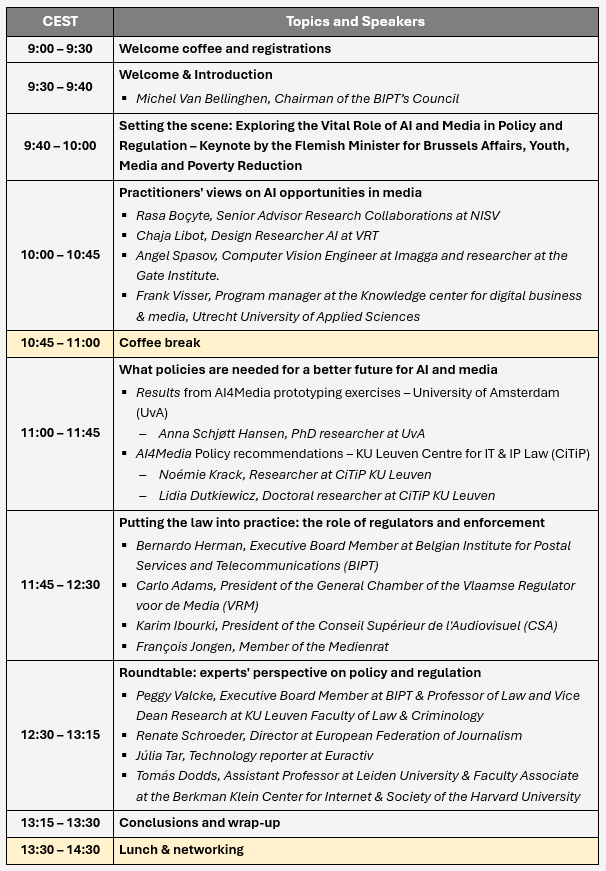
Meet the Speakers:
| (9:30-9:40 cest) | Welcome & Introduction |
 |
|
Michel Van Bellinghen is the chairman of the BIPT Council and is responsible for the following departments: Budget and Finance, Communications, Translation, International Relations and Registry. Michel Van Bellinghen, Master of Laws (UCL), started off at the university in 1990 as a researcher, then became an assistant under the supervision of Professor Françoise Tulkens, at the UCL Laws Centre for Criminal Law. He became an assistant advisor at the Ministry of Justice in 1992 under the supervision of Professor Marc Bossuyt and joined BIPT in 1997. From 1999 to 2003 he held the position of expert at the private office of Rik Daems, who was the Federal Telecommunications Minister at the time, and afterwards took up the function of Assistant Head of the Private Office. From 2003 until 2009 he was nominated Member of the BIPT Council for the first time. Following this mandate he remained closely affiliated to the Council and supervised the legal department of the regulator during a number of years. He has written scientific publications. In 2013 he held a position on the Council as a Member. In January 2017 he was assigned Chairman of the BIPT Council. In January 2024, he was reappointed as Chairman of the BIPT Council. |
|
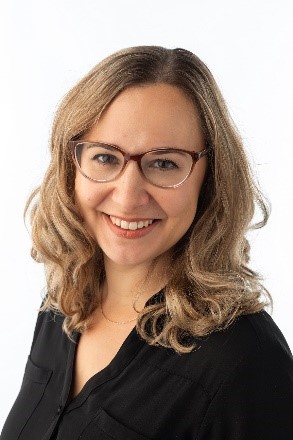 |
|
Aleksandra Kuczerawy is a senior fellow at the Centre for IT & IP Law (CiTiP) at the KU Leuven University, where she leads the Media Law research group. Her research focus is on fundamental rights online with particular attention to freedom of expression, platform regulation, content moderation of illegal and harmful content and AI in the context of new media technologies. She has worked on multiple European projects addressing the regulation of digital technologies in the areas of privacy and data protection, new media regulation, AI, and smart cities. Since 2020, she is a lecturer in media law at the KU Leuven postgraduate programme. Aleksandra is the author of the book “Intermediary Liability and Freedom of Expression in the EU: from concepts to safeguards” |
| (9:40 - 10:00 cest) | Setting the scene: Exploring the Vital Role of AI and Media in Policy and Regulation - Keynote |
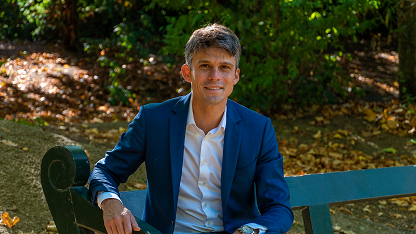 |
|
He is actively involved in Molenbeek and CD&V – Capital Division Brussels, which he presided from 2015 to 2018. On 25 May 2019, he headed the Brussels list for the elections of the Flemish Parliament. Since October 2019, he is the minister of Brussels, Youth and Media in the Flemish government. |
| (10:00 - 10:45 cest) | Practitioners' views on AI opportunities in media Moderation: Noémie Krack, Centre for IT and IP law (CiTiP) |
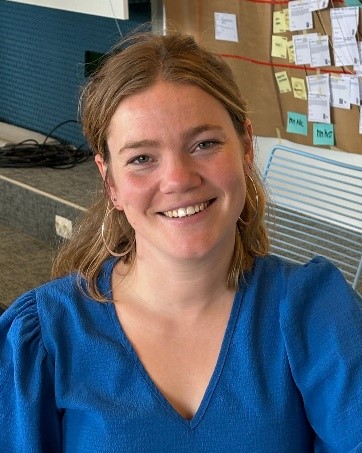 |
Chaja Libot is a design researcher at VRT, where she has been working on innovation and research projects for the past five years. With a focus on artificial intelligence, interaction, and disinformation, Chaja has contributed to both European and Flemish initiatives. In February 2024, Chaja played a key role in establishing a core AI team within VRT. This team is dedicated to exploring new AI developments for media and works collaboratively with various departments to integrate AI solutions throughout the organization. Chaja's primary focus is investigating how AI can add significant value for both media creators and end-users, with a particular emphasis on AI in journalism. |
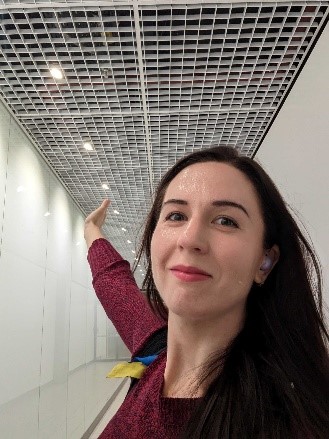 |
Rasa Bočytė is a cultural heritage professional with a passion for forging cross-sectoral collaborations underpinned by creative and critical approaches. In her current role at the Netherlands Institute for Sound & Vision, she leads the development and execution of international research and innovation projects around new creative practices, business models and technological interventions to increase the societal impact of cultural heritage. Her background is in Archival Studies and Art History. |
 |
Frank Visser is currently working as a program manager for the research center digital business & media from the HU University of Applied Sciences Utrecht. In this research center 10 professors and 125 researchers look into how human centered digitization in business and media can be realized. Responsible AI, media and trust form an important part of this research. Before Frank has worked as program manager on innovative projects for the media industry, co-creating the three part innovation agenda on data, content and news with the CEO’s of the Dutch content creation and publishing companies in news and entertainment. This innovation agenda has become the basis for a number of innovation and research activities in the coming years. |
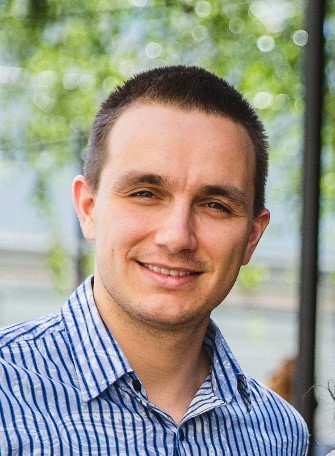 |
Angel Spasov is a Computer Vision Engineer at Imagga Technologies, a leading AI solutions provider specializing in visual content since 2012. At Imagga, Angel has contributed to numerous private and EU-funded projects. He is currently pursuing a PhD at Sofia University and holds a Master’s Degree in Information Technology from the University of St Andrews and a Bachelor’s Degree in Business Administration from Humboldt University. |
| (11:00 - 11:45 cest) | What policies are needed for a better future for AI and media Moderation: Lidia Dutkiewicz, Centre for IT and IP law (CiTiP) |
 |
Anna Schjøtt Hansen is a technological anthropologist and PhD Candidate at the Media Studies Department at the University of Amsterdam. Her PhD research consists of multiple case studies where she ethnographically explores how responsible AI is conceptualised and pursued in practice in the media sector – predominately in Europe – to critically examine the politics of AI design processes and their implications. She does her research as part of the AI4Media project, where she among others has co-authored a whitepaper on societal, economic and political impacts of AI in media and several other short reports. She is also the current editor-in-chief of the AI Media Observatory. |
 |
Noémie Krack is a researcher at the Centre for IT and IP law (CiTiP) of KU Leuven - imec. Her research focuses on media law, artificial intelligence and the challenges that technology raises for fundamental rights. Currently, she is studying the impact of the use of AI and Generative AI for information and content manipulation through the lens of fundamental rights and new EU legislations. She has worked on several European Union interdisciplinary projects on technology and media, including AI4Media and MediaFutures. She provides guest lectures in the Media law class of the KU Leuven programme Master of Intellectual Property and ICT Law (LL.M.). In AI4Media, she conducted legal and ethical research on content moderation, AI regulation and developed policy recommendations for the use of AI in the media sector. She also contributed to the creation of the European AI Media Observatory, led by UVA, of which she is also an Editorial Board Member. |
 |
Lidia Dutkiewicz is a doctoral researcher at the Centre for IT and IP law (CiTiP) of KU Leuven - imec. In her Ph.D. research, she analyses the phenomenon of “platformization” of news and the impact of algorithmic content moderation on media freedom, media pluralism, and editorial independence. Lidia acts as an ethical advisor in vera.ai (VERification Assisted by Artificial Intelligence) project focusing on AI disinformation and she assesses legal requirements for trustworthy news recommender systems in the ALGEPI project. In the AI4Media project, she studies the impact of AI media applications (including generative AI) on fundamental rights and she investigates the EU regulation of content moderation. She provides legal and ethical guidance and develops policy recommendations for the use of trustworthy AI in the media sector. She is also an Editorial Board Member of the AI Media Observatory. |
| (11:45-12:30 cest) | Putting the law into practice: the role of regulators and enforcement Moderation: Aleksandra Kuczerawy, Centre for IT and IP law (CiTiP) |
 |
Bernardo Herman is Executive Board Member of the BIPT Council responsible for the Consumers, Controls, Postal Market and IT departments. The Consumers department covers operations related to the enforcement of the Digital Services Act. Bernardo Herman has held various legal, regulatory and management positions for more than 20 years in the electronic communications and audiovisual sectors with several private and public organisations. After a 5-year experience with the mobile operator KPN-Orange/Base Company, where he was involved in various governmental affairs and competition law files, he joined BIPT for the first time in 2004 as Legal Adviser assigned to the Telecom Market Department. From 2006 to 2009, he was responsible for the development and implementation of the regulatory and strategic programme of the European association ETNO. He then took on management positions for more than 11 years at the Conseil Supérieur de l'Audiovisuel (CSA), which he headed for five years. There, in 2019, he was Director of European Affairs in charge of the follow-up of the Vice-presidency of ERGA, the European Audiovisual Regulators Group. Within this role, he has constantly worked to improve the level playing field in the market by contributing to regulatory policies related to the liability of online platforms. He has then been appointed as a Member of the BIPT Council and is assuming his duties since September 2021. In January 2024, he was reappointed as Member of the BIPT Council. |
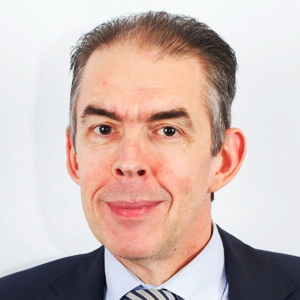 |
Carlo Adams is since 2018 chairman of the general chamber of the Flemish Regulator for the Media (Vlaamse Regulator voor de Media – VRM). Before this he was a vice-chairman from 2008 until 2018. Since its establishment, Carlo Adams participates in the Conference of Regulators of the electronic communications sector (CRC), which unites the Belgian regulators BIPT, CSA, VRM and Medienrat. He is also chairman of a chamber in the Belgian Council of State. |
| François Jongen is a lawyer and professor at the UCLouvain, and a member of the Medienrat since 2015. He’s author of numerous publications in Media Law and of several other books. He’s also music journalist for La Libre Belgique, RTBF Musiq3 and various opera magazines. |
| (12:30 - 13:30 cest) | Roundtable: expert's perspective on policy and regulation Moderation: Lidia Dutkiewicz, Centre for IT and IP law (CiTiP) |
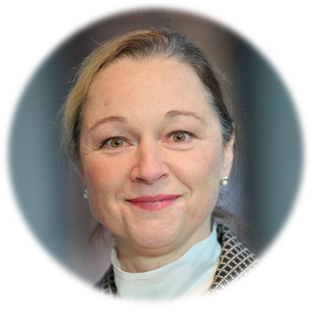 |
Peggy Valcke is executive board member at the Belgian Institute for Postal Services and Telecommunications (BIPT - IBPT), where she is in charge of HR, legal affairs and network security. She is also (part-time) full professor of law & technology at KU Leuven and vice dean for research at the Leuven Faculty of Law & Criminology. She combines academic, regulatory and public policy experience in the broad domain of ICT law. She has been member of the General Chamber of the Flemish Media Regulator and assessor-judge at the Belgian Competition Authority for 15 years (2008-2023). She served as personal advisor to Vera Jourová, Vice-President European Commission, in the context of the European Media Freedom Act (2022-2023), and as expert media policy in the cabinet of the Flemish media minister (2005-2008). She is head of the Belgian delegation in CAI, the Council of Europe's Committee on AI tasked with negotiating a European Convention on AI, and previously served as elected vice-chair of its predecessor committee, CAHAI. At KU Leuven, she is co-director of CiTiP, the Centre for IT & IP Law, where she (co-)developed research lines in the areas of media and communication platforms; cybersecurity and cybercrime; autonomous and intelligent systems; privacy and data protection; and data economy and governance. She is also executive committee member at Leuven.AI and principal investigator at imec (previously iMinds). Peggy has taken up positions as visiting and part-time professor at Tilburg University (Netherlands; 2009-2018); Bocconi University Milan (Italy; 2018-2019), the European University Institute in Florence (Italy; 2014), and Central European University in Budapest (Hungary; 2006-2007). |
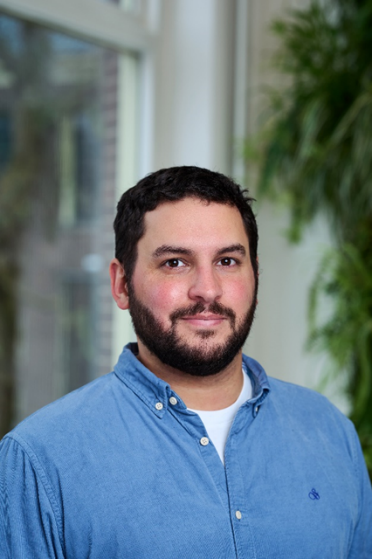 |
Tomás Dodds is an Assistant Professor in Journalism and New Media at Leiden University and a Faculty Associate at the Berkman Klein Center for Internet & Society at Harvard University. He is also a researcher in the AI, Media & Democracy Lab in the Netherlands and the Artificial Intelligence and Society Hub [IA+SIC] in Chile. Tomás’ current research interests focus on artificial intelligence and automation in the media sector, immersive technologies, civic data science, and governance of technologies and the Internet. |
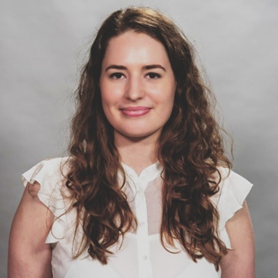 |
Júlia Tar is a technology reporter who joined Euractiv's Technology hub in March 2023, becoming the first Lénaïc Fellow at Euractiv. Júlia covers topics such as law enforcement, platforms, and content moderation. Before her move to Brussels, she worked as a journalist in Budapest. She studied Journalism in the Netherlands at the University of Groningen. In 2019, she enhanced her skills at the Bakala Foundation's Journey: Journalism Bootcamp in Prague, where she learned from experts from CNN, The New Yorker, Bloomberg, Reuters, and the Associated Press. |
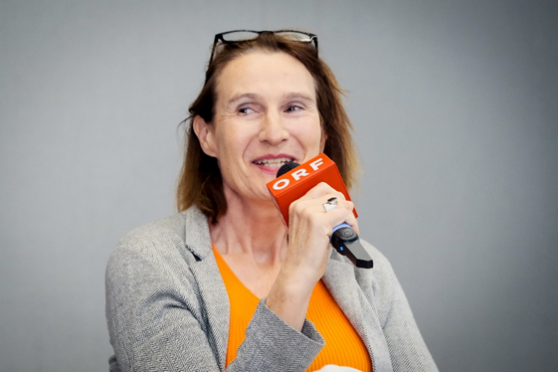 |
Renate Schroeder is the Director of the European Federation of Journalists, In 1993 she joined the International Federation of Journalists (IFJ) and since 2003 she works for the EFJ. Advocacy at EU and Council of Europe level; presentation of EFJ at international meetings, lectures and fact-finding media freedom missions; member of juries of journalistic prizes, project work, communication and assistance in several EFJ expert groups including on freelancers, media literacy and digital journalism, cover her work-load in the small dynamic Brussels office. |

